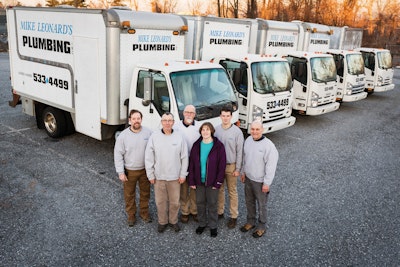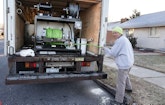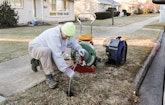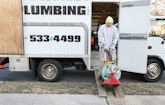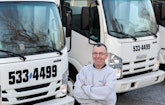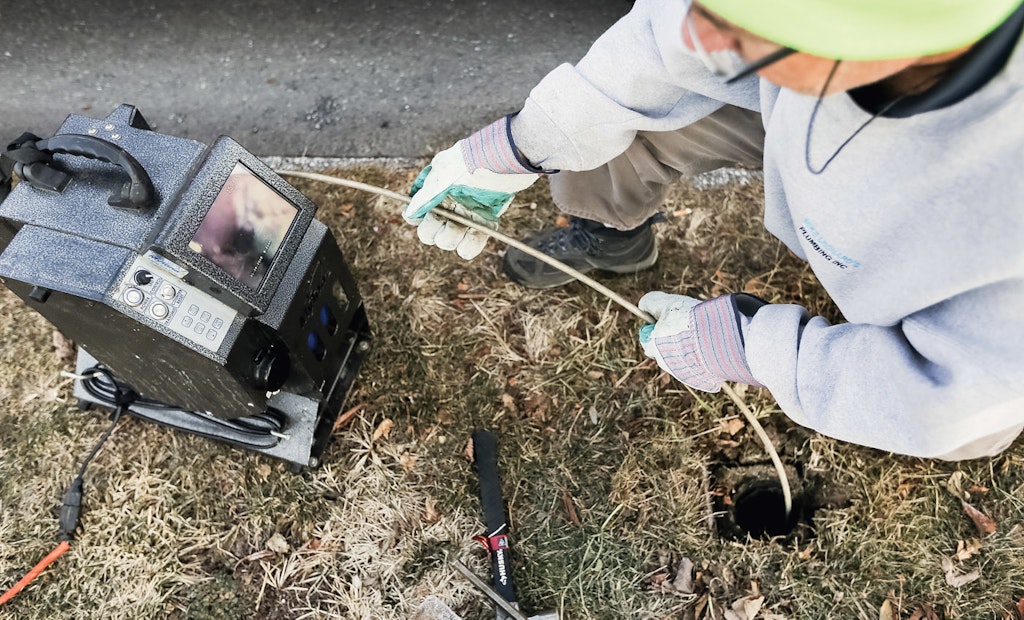Interested in Business?
Get Business articles, news and videos right in your inbox! Sign up now.
Business + Get AlertsMaster plumber Mike Leonard formed his company with a defined plan of action. He knew what he wanted to do. He also knew what he didn’t want to do.
The mission was to provide plumbing and drain cleaning services for a residential and small commercial clientele, with no deviation into other services such as new construction or HVAC. His firm belief, which has been the bedrock of the company’s success, is that if you provide high-quality plumbing and drain services and carry the inventory to tackle most any job, you will have a platform for success.
Leonard’s primary service area includes three small communities within a 10-mile radius, with a mix of older residential areas and newer developments. Commercial work, which makes up about 15 percent of the business, includes doctors’ offices and medical centers. For major projects, large facilities typically go out for bid and Leonard does not participate.
He sets himself apart from much of the competition by offering flat-rate pricing, from a drain cleaning call that requires inspection and jetting, to a quick faucet replacement. For small drains, the call is $260 for the first hour, and with larger drains it is $440. The charge for additional time when required is $40 per quarter hour.
“The beauty of the flat rate, although you always get kickback — nobody wants to spend $500 unless on vacation or a meal out — is that it works. The neat thing that calms the storm very quickly is the camera. The customer is looking at the screen and they are seeing a ball of roots and all the other things involved and how bad things are; and they’re thinking, ‘Man, I’m glad we’re doing this.’ Ninety-five percent of the time, this takes the sting out and they are happy to be paying the bill and solving a big problem.
“Until we had the camera, things were unseen. You ran the cables down but you didn’t know what was there or if you got all the roots out. Now I can let the camera sit there and I can work the roots and I know when they are gone.”
Lateral demand
Most of the company’s lateral line work involves terra-cotta, Orangeburg and cast-iron pipe. Problems with PVC pipe are usually related to improper installation.
“We see Orangeburg pipe literally falling apart, and the roots strangle it and close it off like a boa constrictor. Terra-cotta with 2-foot joints will have water leaks at each joint where we see lots of sludge clogs. With cast-iron pipe, it will be rough inside and cause debris to hang up.”
There are more clogs with the low-flush toilets because of the lower volume of water going through the drain. “People don’t think about the effect this has on their drainlines.”
The company handles all cleaning work in-house, but when a line requires rehabilitation — relining or pipe bursting — he works with a subcontractor. Even though another company handles those services, Mike Leonard’s Plumbing stays involved in the project from start to finish.
Customers are made aware that another company will be doing a specific part of the project in these instances. Leonard takes care to explain the processes and how every aspect of the work will be handled.
“We have a great relationship with this company. We will get everything ready, and they will come in, do their thing, and then we finish up,” he says.
Even though he’s bringing in a subcontractor for these services, it’s still an important profit center. Leonard sees a great potential for growth in this segment of the business due to the number of aging and failing systems in his service area, along with growing demand.
Stocked for success
The company operates out of a 5,000-square-foot warehouse and office in a prominent location in Hershey, Pennsylvania. Plumbers have a quick drive if they need to pick up a piece of equipment, and he maintains a substantial supply inventory.
Leonard prides himself in the inventory he carries and the value of his seven service vehicles. The Isuzu trucks have tilt-forward cabs with gas engines and 14-foot custom boxes on the back. Because of the relatively small service area, these trucks put on only 7,000 to 10,000 miles in a year, and he tries to get up to 10 years per van before replacing them.
“When we pull up into your driveway, you have the value of $150,000,” he says. “The truck is worth $60,000, and with all the tools we maintain and the inventory, you have that much total value.”
Leonard sends all vehicles to a garage for service and has no interest in an in-house mechanic. “The people who take care of our trucks are experienced, and what they do they do well to get my trucks back on the road,” he says. “We make from $8,000 to $20,000 a day per truck. If it is sitting in a shop, I’m not making money.”
Drain equipment is from General Pipe Cleaners and Spartan Tool. The company uses camera systems from MyTana Mfg. and RIDGID along with a RIDGID locator and Hot Jet USA jetter producing 6 gpm/2,500 psi.
Three of the people on the staff operate the jetter, but two others will soon go for training. Leonard says he likes the safety and operational training Hot Jet USA offers.
“We like the products we use and have had great success with them,” he says. “We have to stay up on things by reading, and the experiences we have with the various products in the field are important. We want to build on our own knowledge because what the manufacturers say and what happens in the field can be very different.”
The right people
Leonard has been fortunate to find plumbers who fit into the culture he has developed, which allows them to develop a clientele within Mike Leonard’s Plumbing.
“They pretty much represent themselves,” Leonard says. “I provide the pricing and the way we want to do things. But these plumbers will meet from two to eight people in a day, and they can offer opinions as to replacing a fixture or item. They can develop their own business in this way. We provide the booties, uniform, cellphones. Customers can request a specific plumber.”
The service staff includes three journeymen plumbers and two apprentices. “We have Joe Rothermel, who has been with me 20 years, and Mike Keller, 16 years. Henry Theisen has been a plumber in our company for seven years.”
Employees take their work vehicles home at night, which they appreciate. In addition, they always have quality tools, and Leonard insists they replace anything that has outlived its service life in any way.
Like most firms, there is the challenge in attracting new technicians into the industry. Leonard actually pays young people to ride along with one of his plumbers during the summer months, offering $10 an hour. His son Christopher, now in college, worked with a driver for two years, and in 2017, his daughter Lylee wanted to learn more about the business and spent the summer working with a plumber.
He says several young people apply for these summer jobs every year, but he will only hire them if he has a plumber available to participate.
“If I could find plumbers, I would hire in a heartbeat, ” he says. “We could use two or three more if I can find quality people with integrity.”
He offers full benefits, health care for employee and the family (including eye care and dental), as well as a 401(k) with a 4 percent match.
“I’ve tried word-of-mouth, advertising for help, hiring companies to find people,” he says. “One of these days, we know the right person is going to walk through the door.”
Just like family
In the meantime, Leonard pledges to take good care of existing customers, and he has no desire to expand beyond the current 10-mile service radius.
He says if he were advising a startup company, he would emphasize the importance of integrity and treating people with respect, as if dealing with your own mother or grandmother.
Leonard says the most valuable policy in terms of developing customer relations has been to have employees who are happy and who can represent his company to the best of their ability. This has been a winning foundation for Mike Leonard’s Plumbing.
Flush Away Hunger
About four years after opening Mike Leonard’s Plumbing in Hershey, Pennsylvania, owner Mike Leonard wanted to show his appreciation for the business by making regular donations to the local food banks in the three communities he serves.
He called the program Flush Away Hunger. A quarterly donation is made to the food banks in Hershey, Palmyra and Hummelstown. It amounts to $1 for each and every job the company has performed in a four-month period. The most recent donation amounted to a $250 check to each organization.
Over the years, the program has garnered Leonard some attention in local newspaper and television coverage.
“I just wanted to give back to the communities that have supported our company,” he says.
This important contribution is in addition to many other efforts, such as sponsoring multiple local sports teams. Leonard’s wife, Diane, has joined her husband in representing the company in these various community activities over the years.
“Diane keeps a low profile in the office, but she is there handling bookkeeping and other duties while putting in some long hours,” Leonard says. “She has been a significant contributor to our success.”
